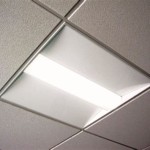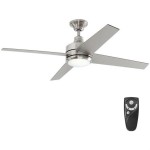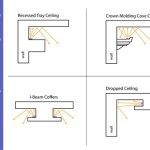Essential Aspects of Vaulted Ceiling Design Ideas
Vaulted ceilings are a stunning architectural feature that can add grandeur and elegance to any room. Whether you're designing a new home or renovating an existing one, incorporating a vaulted ceiling can transform the space and create a unique and inviting atmosphere. Here are some essential aspects to consider when designing vaulted ceilings:
Shape and Height
The shape and height of your vaulted ceiling will significantly impact the overall look and feel of the room. Common shapes include barrel vaults, which create a continuous curved surface, and groin vaults, which feature intersecting barrel vaults. The height of the ceiling will determine the sense of space and airiness. Higher ceilings create a more dramatic effect, while lower ceilings can make the room feel more intimate.
Material and Finish
The choice of material and finish for your vaulted ceiling will depend on your personal style and the overall design of the room. Wood is a popular option that adds warmth and texture, while drywall provides a smooth, clean surface that can be painted or decorated. Other materials such as metal, tile, or glass can also be used to create unique and modern looks.
Lighting
Lighting plays a crucial role in highlighting the beauty of vaulted ceilings. Recessed lights can be used to create ambient light, while chandeliers or pendants can add a touch of drama. Track lighting can be positioned to accentuate specific features of the ceiling, such as beams or artwork.
Windows and Skylights
Windows and skylights can be incorporated into vaulted ceilings to provide natural light and create a connection with the outdoors. Large windows on either side of the ceiling can flood the room with light, while skylights can bring in ample sunlight from above. Consider the placement of windows and skylights to maximize natural light and minimize glare.
Structural Support
Vaulted ceilings require proper structural support to ensure their stability and longevity. The type of support system needed will depend on the size, shape, and weight of the ceiling. Beams, trusses, and arches are common structural elements used to support vaulted ceilings.
Decorative Elements
Decorative elements can enhance the beauty of vaulted ceilings and make them a focal point of the room. Moldings, beams, and other architectural details can add character and depth to the ceiling. Artwork, tapestries, or other decorative pieces can also be suspended from the ceiling to create a unique and eye-catching display.
Function and Purpose
When designing vaulted ceilings, it's important to consider their function and purpose within the space. In living rooms, vaulted ceilings can create a sense of grandeur and spaciousness. In bedrooms, they can add a touch of romance and intimacy. In kitchens, they can make the room feel larger and more inviting. By understanding the intended use of the space, you can design a vaulted ceiling that complements its purpose.
Incorporating a vaulted ceiling into your home can elevate its style and create a truly unforgettable space. By carefully considering the shape, height, material, lighting, windows, structural support, decorative elements, and function, you can create a vaulted ceiling that is both aesthetically pleasing and functional.

Vaulted Ceiling Design Ceilings Armstrong Residential

Transitional Neutral Main Bedroom With Vaulted Ceilings Faces Of Design 2024

13 Unbeatable Vaulted Ceiling Ideas 2024 Checkatrade

Vaulted Ceiling Designs For Every Room Beautiful Homes

10 Of The Best Vaulted Ceiling Lighting Ideas Lightopia

Vaulted Ceiling Ideas For Updated Elegant Striking Drama Décor Aid

Vaulted Ceiling Options Addicted 2 Decorating

Cathedral Ceiling Ideas Ceilings Armstrong Residential

Decorating With Vaulted Ceilings

Vaulted Ceilings Ideas That Take Rooms To New Heights Architectural Digest
Related Posts








